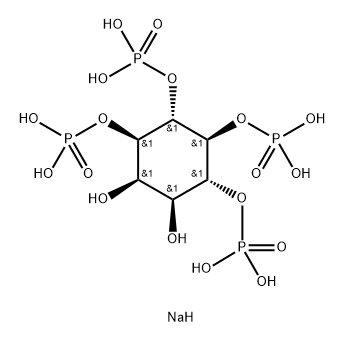Description
D-
myo-
Inositol-
1,4,5,6-
tetraphosphate (sodium salt) (Ins(1,4,5,6)-
P
4) is one of several different inositol oligophosphate isomers implicated in signal transduction. Production of Ins(1,4,5,6)-
P
4 by intestinal epithelial cells increases approximately 2-
14 fold, depending on the strain and incubation time, following infection with
Salmonella.
1 Ins(1,4,5,6)-
P
4 antagonizes epidermal growth factor (EGF) signalling through the phosphatidylinositol 3-
kinase pathway.
1 Ins(1,4,5,6)-
P
4 (tested as the D/L racemic mixture) is ~1,000-
fold less potent than Ins(1,4,5)-
P
3 at initiating Ca
2+ release when injected into
Xenopus oocytes.
2
References
1. Eckmann, L., Rudolf, M.T., Ptasznik, A., et al.
D-myo-Inositol 1,4,5,6-tetrakisphosphate produced in human intestinal epithelial cells in response to salmonella invasion inhibits phosphoinositide 3-kinase signaling pathways Proc. Natl. Acad. Sci. USA 94,14456-14460(1997).
2. DeLisle, S., Radenberg, T., Wintermantel, M.R., et al.
Second messenger specificity of the inositol trisphosphate receptor: Reappraisal based on novel inositol phosphates Am. J. Physiol. 266(2 Pt 1),C429-C436(1994).
